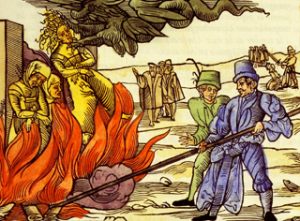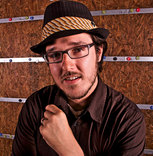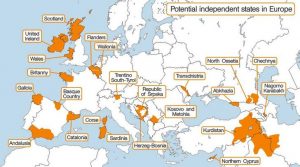In the United States, the terms “conservative” and “liberal” are often employed categorically to distinguish two groups of people based upon ideological differences in several arenas, including politics, economics, and religion. However, the exact differences to which these labels refer remain a matter for debate (Bader, Mencken, & Froese, 2007; Gerring, 1997; Ramachandran, 1994). Are these completely relative terms, with no actual fixed point of reference, largely determined by historical and social influences (Collins (1993))? Or are there distinctive, long-term commitments that separate liberals and conservatives, which underlie the shifting sands of culture and society (Wildman & Garner, 2009; Wolfe, 2009)? Or more shockingly, are we at the “end of ideology” altogether, with no substantial differences between conservatives and liberals, as some have claimed (see Carney, Jost, Gosling, & Potter, 2008; Jost, 2006)? It only takes five minutes of watching the news or a quick scan of any newspaper to observe the perceived (and likely real) differences between self-identified conservatives and liberals. But what lies at the heart of these differences?
While it is apparent that conservative and liberal people hold distinct and often contradictory ideologies, there is emerging evidence in social psychology that political conservatives and liberals may actually think in distinct ways as well. A call to this line of research has been issued by John T. Jost (2006, 2007), who raises a compelling argument for the impact of the ways in which people think, feel, and act on ideology. Jost (2006) contended that ideology is relevant to the work of psychologists because “ideology helps to explain why people do what they do; it organizes their values and beliefs and leads to political behavior” (p. 653). In recent studies of the political spectrum, political conservatives tend to show stronger preferences for order, structure, and closure, while political liberals tends to show more tolerance for ambiguity and uncertainty, as well as more openness to new experiences (Jost et al., 2007). Thus, it would seem that there are, in fact, demonstrable differences between conservative and liberal people and ideologies.
But are these differences consistent across the varied domains of people’s lives? Are politically liberal individuals also theologically, socially, and fiscally liberal? Are politically conservative individuals always theologically, socially, and fiscally conservative? The very existence of this website, voicing the concerns of people who identify as Liberal Evangelicals, suggests the possibility of a more complex reality. If ideology represents a coherent set of attitudes (i.e., cognitions and cognitive styles), associated feelings, and call to action, as Jost (2006) asserted, then it is important to consider the potential differences that underlie ideology because they affect how people choose to live and – in the religious/theological domain – how they carry out their faith or religious beliefs. A greater understanding of the psychological basis of conservatism and liberalism – secular and religious – will shed light on how these psychological factors influence both secular and religious beliefs.
However, these differences in cognitive style have yet to be explored in the religious domain. When researchers do approach the religious realm, the focus often lies on the concrete differences of belief (content) between religiously conservative and religiously liberal persons and communities (e.g., establishing that Christian conservatives are more likely than Christian liberals to regard the Bible as literal and divinely inspired truth, to believe in miracles, to be sexually restrictive). To date, no one has studied the ways (process) in which religious conservatives and liberals form their beliefs. One way to examine these processes psychologically is to identify the cognitive styles and personality traits underlying the theological content of beliefs. Thus, as a doctoral candidate in the Counseling Psychology and Religion program at Boston University, the aim of my research is to study religious differences in belief, psychological differences in cognitive and personality styles, and the impact of cognitive and personality styles on religious beliefs in both religiously conservative and liberal religious believers.
I would like to invite you to join me on this journey. If you think you might be interested in participating in this research project, please review the recruitment information and click on the link below to take the online survey.
| SURVEY: Do Religious Conservatives and Religious Liberals Think Differently? I am a doctoral candidate at Boston University, who is conducting a research study as part of my dissertation, exploring the differences in cognitive and personality styles (i.e., ways that people think and relate) between religiously conservative and religiously liberal Christian individuals. Liberal and conservative ideologies are hotly debated in both politics and religion and stand to impact the lives of many people. However, most of the research conducted to date has focused on political ideas and values to the exclusion of religious beliefs. This research will contribute to a greater understanding of the differences between conservative and liberal people in both political and religious settings. By participating in this study, you will help the voices of people like you be heard by the research community. In addition, should you choose to complete this survey, a $5 donation will be made to a national charity of your choosing (from a pre-selected list). The survey is completely anonymous, takes about 30-45 minutes, and may be completed on the Internet by visiting the survey. If you have questions about this survey or the other studies, please contact Aimee Radom, MTS, at aradom@bu.edu. NOTE: Please feel free to distribute this message (in its entirety, please, whether by paper, email, or on a web site) to anyone that you believe would be interested in taking the survey. |
References
Bader, C., Mencken, F. C., & Froese, P. (2007). American piety 2005: Content and methods of the Baylor religion survey. Journal for the Scientific Study of Religion, 46(4), 447.
Carney, D. R., Jost, J. T., Gosling, S. D., & Potter, J. (2008). The secret lives of liberals and conservatives: Personality profiles, interaction styles, and the things they leave behind. Political Psychology, 29(6), 807.
Collins, R. (1993). Liberals and conservatives, religious and political: A conjuncture of modern history. Sociology of Religion, 54(2), 127.
Gerring, J. (1997). Ideology: A definitional analysis. Political Research Quarterly, 50(4), 957-994.
Jost, J. T. (2006). The end of the end of ideology. American Psychologist, 61(7), 651.
Jost, J. T. (2007). Coda–after ‘the end of the end of ideology.’ American Psychologist, 62(9), 1077.
Jost, J. T., Napier, J. L., Thorisdottir, H., Gosling, S. D., Palfai, T. P., & Ostafin, B. (2007). Are needs to manage uncertainty and threat associated with political conservatism or ideological extremity? Personality and Social Psychology Bulletin, 33(7), 989.
Ramachandran, V. S. (1994). Encyclopedia of human behavior. San Diego, CA: Academic Press.
Wolfe, A. (2009). The future of liberalism. New York, NY: Alfred A. Knopf.
Wildman, W. J., & Garner, S. C. (2009). Lost in the middle? Claiming an inclusive faith for moderate Christians who are both liberal and evangelical. Herndon, VA.: Alban Institute.



